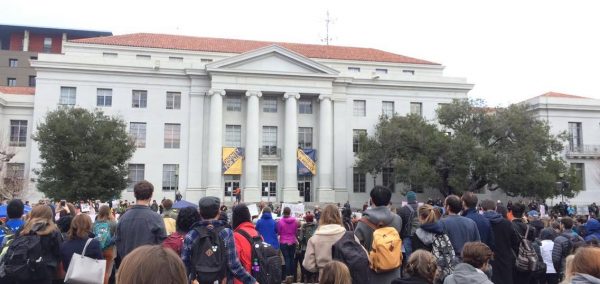
Should Milo Yiannopoulos be allowed to speak at UC Berkeley?
‘Part of me wants to condemn it and part of me wants to say they should allow it’
Since the canceling of his lecture at UC Berkeley, Yiannopoulos took to Facebook and asserted his intent to return to campus in the near future, with a promise to ‘give the speech [he] was prevented from delivering.’ A small victory in the name of free speech, or a crushing blow for the force against Neo-Fascism.
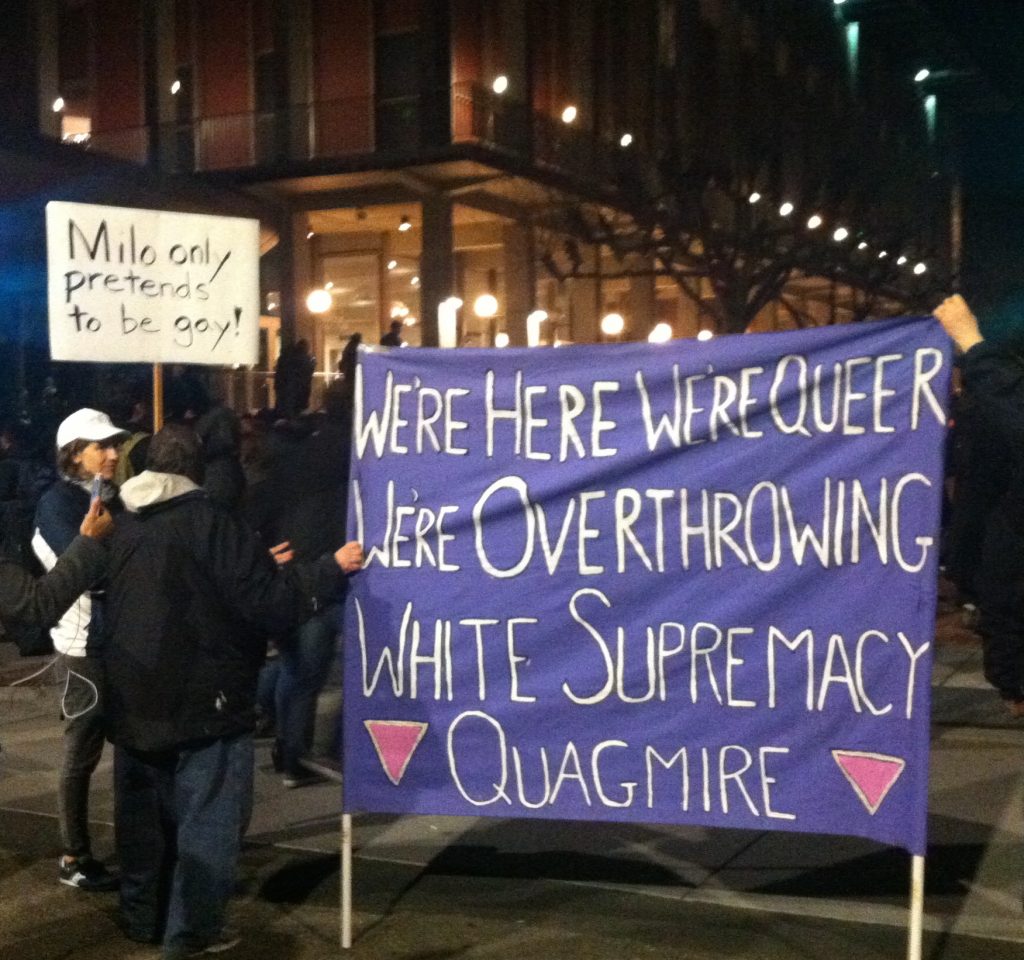
Protesters claiming ‘Milo only pretends to be gay’.
The Berkeley College Republicans requested Yiannopoulos’s visit as part of his ‘Dangerous Faggot Tour’. The Breitbart Editor holds a controversial position given his close ties to the alt-right. Yiannopoulos is a staunch advocate of Trump – repeatedly referring to him as ‘Daddy’ (we’ve no need for our Intro to Psych class on this one).
Immediately as Yiannopoulos’s lecture was announced, students lobbied to prevent him from coming, as had been successful at other universities. Nonetheless, many students recognized the tension between banning controversial speakers and the fact that UC Berkeley attempts to acknowledge the right to free academic speech.
Although priding itself on diversity and creating a safe community to study within, UC Berkeley made the decision to allow the divisive speaker. Chancellor Nicholas Dirks cited two reasons for this decision. First, the universities legal obligation to authorize Yiannopoulos to speak (given the US Constitution). Secondly, because Berkeley is the home of the ‘Free Speech Movement’ and with that comes a commitment to freedom of expression.
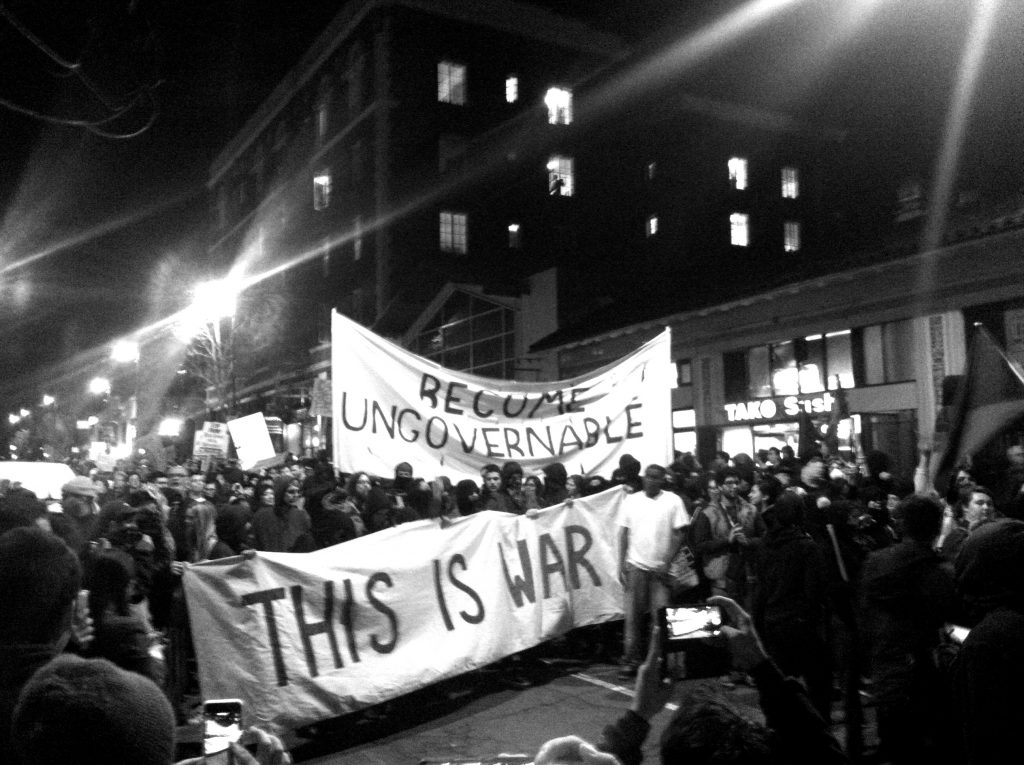
The protests after the event was cancelled due to reports of violent protesting.
The student body had planned a peaceful ‘dance party protest’ yet it was hijacked by anarchist groups. Amidst a vehement protest (where there were reportedly bonfires, fireworks, rubber bullets and tear gas) UC Berkeley was forced to cancel the lecture due to safety concerns, with only a few hours notice.
UC Berkeley has since condemned the violence and reiterated its support for the right to free speech.
Students had questioned whether a speaker who has referred to Islam and Feminism as ‘cancer’ should be allowed to lecture in a university setting.
Protesters accused the university of ‘protecting the fascist agenda’ and putting the ‘abstract concept of free speech above human life’. They claimed Yiannopoulos, Trump, and their supporters do not care about free speech themselves. In turn the protesters refused to ‘give fascism a chance’.
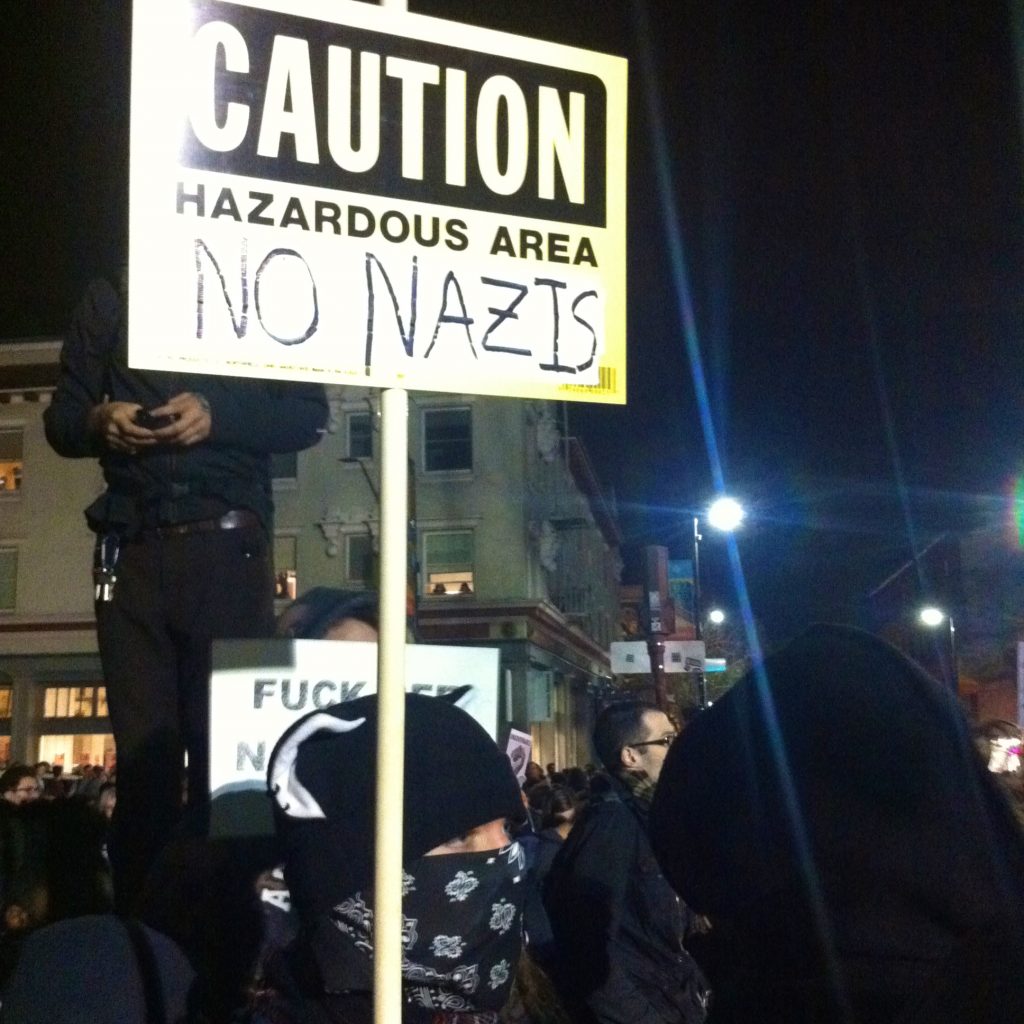
Protesters accused others of spreading the ‘fascist agenda’.
Students voiced their opinions during the protest and in the aftermath of President Trump’s tweet which threatened to withdraw ‘federal funds’ from UC Berkeley.
Do you think that divisive speakers, such as Milo, should be allowed to speak at UC Berkeley?
Sasha Narain Intended Major MCB and Public Health:
I think that because students initiated the movement they have a right to bring that speaker. The campus has a duty to protect students- not only to protect their right to invite speakers but also other students rights to protest.
Sara Wexler (Freshman) Philosophy Major:
No, not when it is hate speech and promoting the oppression of others.
Zachary Parker (Junior) Philosophy Major:
I think that they have a right by invitation to show up, but people who show up to protest also get to express their freedom of speech.
Kayla Flores (Freshman) Media Studies Major:
I think that they should be allowed. I do not necessarily agree with what they are speaking on, but knowing that this is the birthplace of the Freedom of Speech Movement I do not think that people should try and prevent him from speaking. I do think that people should protest it and stand for their own beliefs.
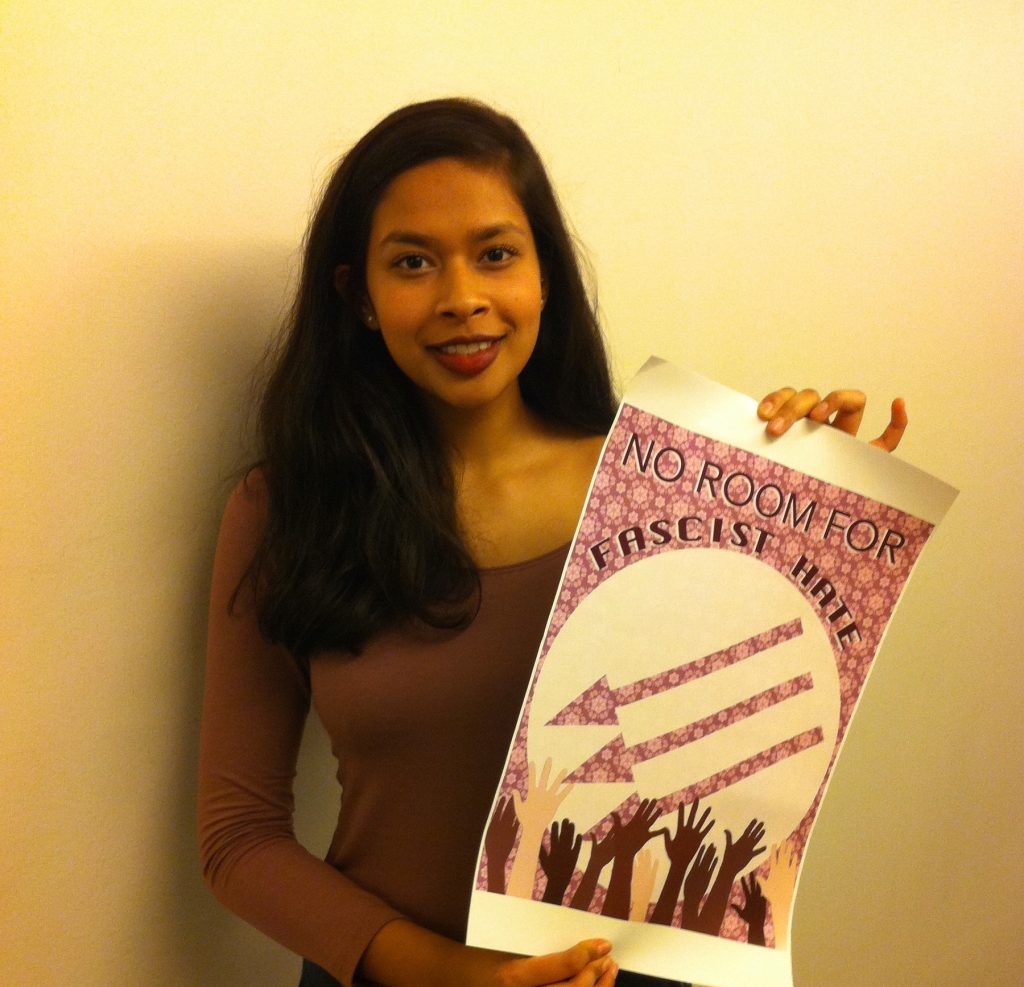
‘No Room for Fascist Hate’
Sasha:
I don’t think hate speech should be allowed, but the students wanted Milo to speak. If students don’t think speakers should be allowed, they should protest- but they can’t protest the university allowing speakers to express their views. If the university had invited Milo then it would be a problem.
Zach:
I agree that it is hate speech but question of its being allowed or not, I think it is a hard line to follow. Part of me wants to condemn it and part of me wants to say they should allow it.
Kayla:
I think it is OK to protest and be against it, but I do not think people should prevent him from speaking – even though I think his points are wrong.
What would you say to people who say that this is free speech and should be allowed?
Sara:
I would say it is not free speech because it is hate speech. I think it normalizes the rhetoric of the alt-right and ‘free speech’ is used as a euphemism. Their view points are harmful.
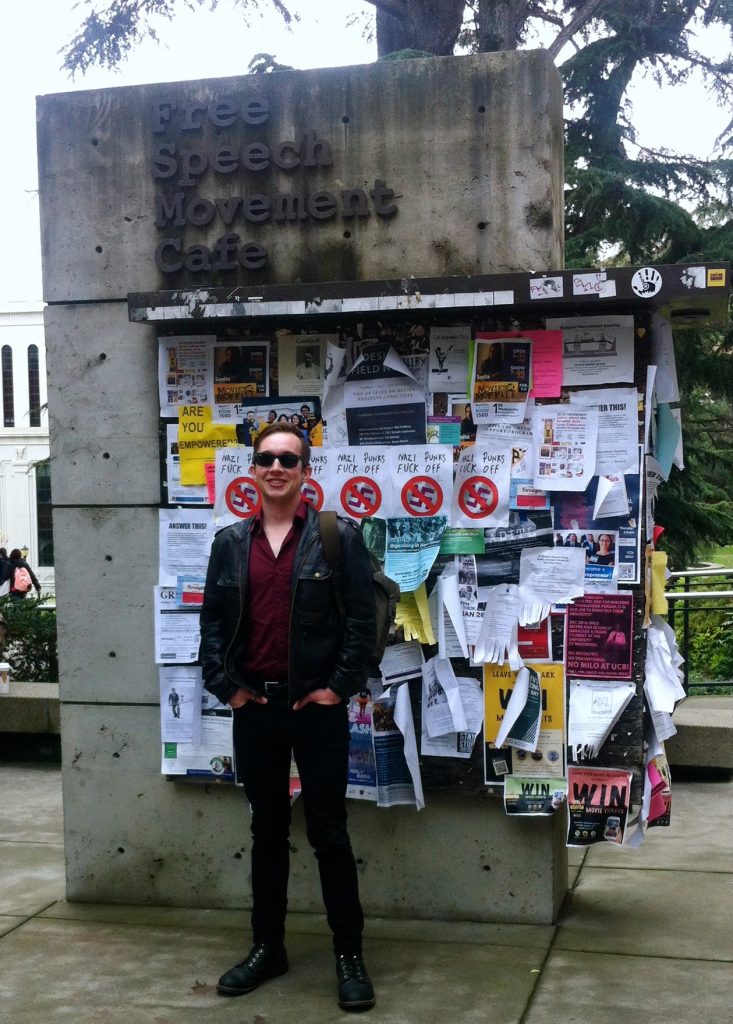
Zach, outside the ‘Free Speech’ Cafe at Berkeley.
Would you protest if Trump came to speak?
Sasha:
Hell yeah.
Sara:
Yes, of course.
Zach:
For sure.
Kayla:
Yes, I would.
